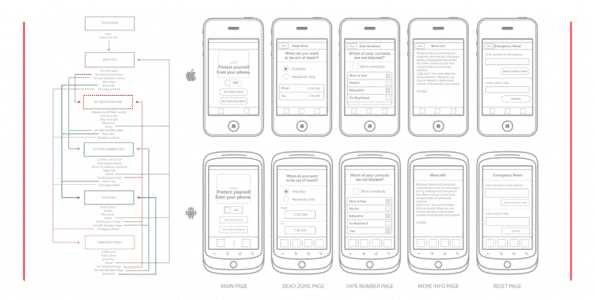How to Find the Right Digital Health Technology Development Partner
The scenario is becoming more and more familiar. A digital health entrepreneur, whether a physician or not, comes up with an idea and starts looking for help from a software engineer/development partner to create an app or some other software product. It starts with the proverbial sketch on a napkin. Health Tech Engineers Are from Venus; Doctors Are from Mars
The entrepreneur frequently uses word of mouth to find the right partner and starts exploring possible vendors, many of which use engineers outside of the US to save costs. Often there is little or no end user experience or interface input and the result is a product that fails…
So, what should you consider if you are seeking a digital health IT technology development partner?
- What is your value proposition, product market fit and digital health strategy? What is the product supposed to do (jobs, relieve pains and meet expected gains) and how will you measure the results? What clinical, business, experience and workflow problems will it solve that will create 10x the user defined value compared to competitive offerings?
- Does your technology partner take a provider-centric approach by involving clinicians as key members of the development team?
- How much of your technology partner’s research and development budget is devoted to garnering information about user experience?
- Have you ever had a usability assessment on your application portfolio?
- Does your technology partner have an end user group to provide ongoing feedback?
- Does your technology partner provide you with easy and intuitive training and support?
- What are the issues with using domestic v offshore development partners
- What is the budget, timelines and deliverables and consequences if they are not met?
- Here are some app development guiding principles:
The right app development partner will ❶ Understand your business and project needs ❷ Have enterprise grade app design capabilities ❸ Have broad technology expertise spanning mobile, web and enterprise integration ❹ Offer outstanding customer service and support ❺ Adapt to your work culture
10. What do you need to know about IT development “middlemen” who source clients for companies, essentially acting like brokers representing many different companies instead of a business development or sales person for just one?
11. Does the developer have staying power with a reputable management team and financial resources?
12. Do they service clients after the sale?
13. How will you integrate your solution, if necessary, into legacy EMR systems like Cerner and Epic?
14. What are they cybersecurity protections?
15. Who is liable for data security leaks?
16. Who owns the IP around the website or product? Is it purely work for hire or something else?
17. What are the payment terms and conditions?
18. Suppose things don’t work out. Is the vendor willing to transfer the data or work already done with a new vendor?
19. How much will it cost to make improvements, updates or patches?
20. Is there an account executive assigned to you or are you dealing directly with the developer?
Your IT strategy and the products you develop to execute it should help you achieve your clinical, experience, workflow improvement and business goals and endpoints. Do your due diligence and choose partners wisely. Contact other customers. Look at their products and results and demand accountability. Otherwise, that sketch on a napkin will never see the light of day.
Arlen Meyers, MD MBA is the President and CEO of the Society of Physician Entrepreneurs and CMO at cliexa



